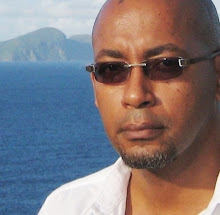A brief (and personal) review of a few things that happened in 2009 and a preview of 2010
Renewable energy in the Caribbean
One word: geothermal. It’s the game-changer in the Eastern Caribbean, but only a couple of our countries appear to have seriously recognized this. Those that have, are now well on their way to developing truly sustainable and energy-independent futures. Others are trying to catch up, and yet others are still at the lip-service, do-nothing stage of the game.
First out of the blocks was Nevis. Having started explorations in January 2008, their geothermal project achieved critical milestones during 2009 (proving significant energy potential and signing of a power purchase agreement with the local electric utility). The project developer is now scheduled to commence drilling of production wells in first quarter 2010. This will be followed by commencement of construction on the proposed 11 MW geothermal power plant, which will supply baseload power to the Nevis Electricity Company (whose 2009 peak demand was about 9 MW).
Dominica isn’t far behind – and they're dead serious about geothermal. The Dominica government commissioned two separate geothermal explorations on the island in 2008; so far one of these has (unsurprisingly) concluded that Dominica has the largest geothermal energy potential in the Caribbean. The next steps will be to perform exploratory drilling in specific locations in 2010, to prove the extent of the resource, and to inform the design of the power plant options, which vary from 2+15 MW to 4x30 MW. And that’s only one of Dominica’s geothermal projects.
The other countries? Let’s see what happens in 2010.
Copenhagen
Let’s file this under what didn’t happen. By most reports, the outcome of the climate change summit represented a failure of political will on the part of the leaders of the world’s two biggest polluters, and a few others. China appears to have been particularly intransigent and, some have claimed, largely responsible for the failure of the talks. And it seems a supreme irony that, just weeks after his administration officially declared greenhouse gases to be a public health hazard, President Obama was unable to make any significant pledge for America, the world’s largest per-capita culprit, to cut its emissions of the stuff. The question now is: how to recover and move on? Expect lots of debate (and finger-pointing) in 2010.
Smarter Energy
Energy efficiency became sexy in 2009; look for it to be taken seriously in some parts of the Caribbean in 2010. Its newfound status is partly propelled by the breathless reporting from the developed world about so-called ‘smart’ electricity metering (part of a larger approach to achieving the ‘smart grid’). More important is the growing realization that energy efficiency is truly the low-hanging fruit; the easiest and least costly way to deliver energy services. And, for Caribbean countries that are dependent on imported energy (ie: all except Trinidad & Tobago) the benefits are even greater.
Welectricity, an award-winning new service to be launched in first quarter 2010, is based on this realisation. With its innovative, behavior-based approach to the energy efficiency problem, Welectricity will help households to achieve positive energy efficiency outcomes. Watch this space (and get more information at www.welectricity.com).
Twitter
The surprise of the year. I started using twitter in January (my first tweet: “Finishing off a commentary for my website www.greenislandinc.com”). In less than 12 months, it had become my number one source of information on developments in renewable energy and energy efficiency.
When I started using the micro-blogging service, it was because I vaguely realized that I ‘had to’. According to what I had read, it was supposed to allow me to extend my marketing and advertising reach beyond my traditional sphere of connections, budget, and so on.
I’m not quite sure how the marketing and advertising bit has worked out yet. John Wanamaker, a US department store merchant, once famously said that “half the money I spend on advertising is wasted. The trouble is I don’t know which half.” That’s sort of how I feel about the time I’ve invested in twitter. But I do know that what I have gotten is a great and growing source of relevant and timely information and opinion that I didn’t previously have - all in one place. Priceless.
For more insight on the twitter phenomenon, read the June 2009 Time cover story (the opening sentence is spot on). Then follow me on twitter at http://twitter.com/hazbert
Goodbye, Google.org blog
10 years ago






No comments:
Post a Comment